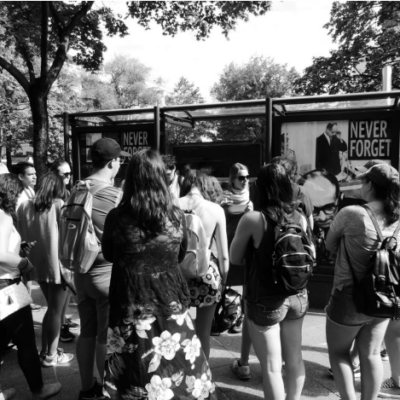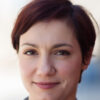
Information Sessions for Summer II 2024:
Tuesday, January 9, 2024
4:00 – 5:00 pm, Zoom
Friday, January 12, 2024
5:00 – 6:00 pm, Zoom
Monday, January 15, 2024
In person drop in
Tuesdays, 4:00-5:00 pm, 932 Renaissance Park
Courses
POLS 4937 offers students immersion into the role and legacy of the Holocaust – as one of the most significant and traumatic event in Europe’s shared history and politics. The main questions still remain how, and why, Germans and other European societies were able commit the Holocaust – from the political elites of the Nazi regime to ordinary men and women who served in Police battalions, worked as camp guards, and were neighbors and friends. Students will learn about the origin, implementation, and impact of the Holocaust through an examination of the perspectives of perpetrators, victims, helpers, collaborators, and those resisting the Nazi movement.
POLS 4938 focuses on the large-scale experience of suffering and violence by consulting oral history, personal testimony of survivors, and practices of commemoration and remembrance. In their travels to Munich, Nuremberg, Berlin, and Auschwitz, students will explore the continuing, central, role of these places as sites of memory and trauma. Few themes have preoccupied postwar Germany as much as the struggle to ‘come to terms’ with its National Socialist past. How does one wrestle with the legacy and heritage of the Holocaust in particular, and genocide in general? The course will chronicle the evolution of a nation’s confrontation with its Nazi legacy, and evaluate the impact and limits of such efforts. Explorations of key sites of trauma and memory, such as former concentration camps; everyday practices of commemoration, such as the use of Stumbling Stones; visits to Holocaust memorials across Germany; and interactions with survivors, experts, and scholars will provide a first-hand experience of how the unspeakable history of the Holocaust is being narrated and memorialized in different ways – and to what effect.
This program takes students to Germany (and Poland) to learn about the Holocaust and its impact on our understanding, and prevention, of genocides today. Through visits to historical sites that played a central role in the planning and executing of the Holocaust, museums, memorials, former concentration and extermination camps, conversations with survivors, and seminars with co-educators, students will explore the historical, political, and socio-economic contexts of the Holocaust. The program is built on two courses. One course focuses on the origins and stages of the Holocaust; it examines the role of perpetrators, collaborators, and bystanders, but also engages with those who resisted the Nazi movement. The other course focuses on the aftermath of the Holocaust and the role of reforms; special attention is given to the importance of remembrance and the impact of memorials, the role of education, and the question of justice after genocide.
The program will stay in Berlin and Munich (Germany), with excursions to Nuremberg (Germany) and Auschwitz (Poland).
Activities include:
· All-day workshops at the former concentration camps at Dachau, Ravensbrück, and Sachsenhausen
· A 2-day intensive program at the former Nazi extermination camp Auschwitz-Birkenau
· A series of seminars at the Villa Wannsee – the site of the Wannsee conference
· A seminar at the Nuremberg Palace of Justice – where the Nuremberg Trials took place – with a special visit to the Nuremberg Trial courtroom (that is still in use today)
· A tour of the former Nazi Rally Grounds in Nuremberg
The program is led by Professor Bormann, who grew up in Germany and teaches courses on Holocaust and Comparative Genocide. She has been leading this program since 2013 and has written a book about her experience of working at historical sites of trauma and violence: Bormann, N. (2018) The Ethics of Teaching at Sites of Violence and Trauma, Palgrave.
